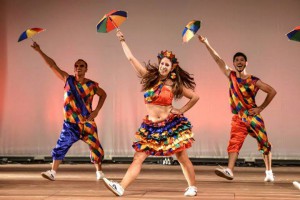
Missy Reif, 2013-2015, Fulbright English Teaching Assistant to Brazil (center), performing with members of Oré Anacã
During my time as a Fulbright English Teaching Assistant (ETA) in Fortaleza, Brazil, it was apparent that my students at the Federal University of Ceará (UFC) had widespread access to American culture. They watched American TV shows and movies, listened to American music. Yet, despite living in the fifth largest city in the country, most of my students had never met an American before I arrived on campus. While this idea made me a little nervous at first, it was an amazing opportunity to show my students that life in the United States is more than American Pie.
ETAs in Brazil fill a number of roles on their university campuses. At UFC, my time was split between giving guest lectures and running my own extracurricular activities on campus. In two years, I led many conversation clubs where we played games and practiced English without the pressure of grades or assignments, and organized weekly cultural seminars on topics including religious and cultural diversity, sports, and American holidays and traditions. All of these activities provided students with opportunities to improve their English, and their confidence, in a fun and laid-back setting. While our activities sometimes focused on aspects of the language—workshops on slang and phrasal verbs were always a hit—I found that the students were most interested in in-depth discussions focusing on distinctions between the United States and Brazil.

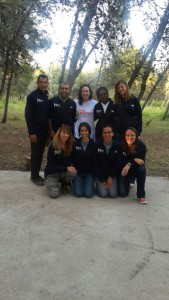
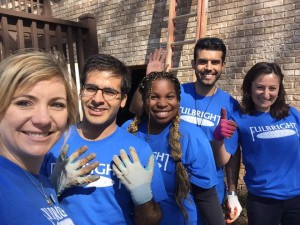
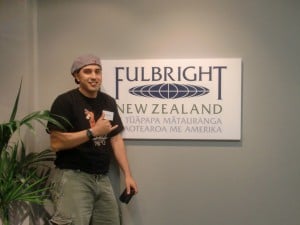
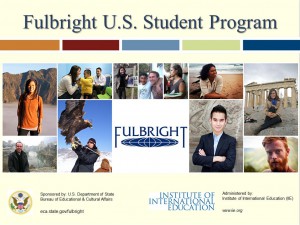 Are you a U.S. citizen interested in learning more about the Fulbright U.S. Student Program but are not exactly sure what it is all about,
Are you a U.S. citizen interested in learning more about the Fulbright U.S. Student Program but are not exactly sure what it is all about, 